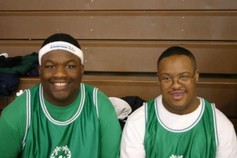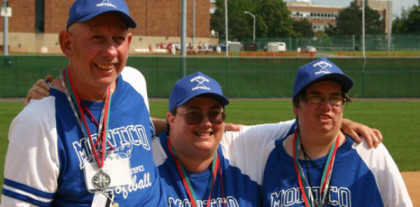
Philosophy
Special Olympics is founded on the belief that individuals with intellectual disabilities can, with proper instruction and encouragement, benefit from participation in individual and team
sports.
Special Olympics believes that through sports training, individuals with intellectual disabilities gain physically, mentally, socially, and spiritually. Families are strengthened; and the
community at large, through participation and observation, is united in understanding individuals with intellectual disabilities, in an environment of equality, respect, and acceptance.
Mission
The mission of Special Olympics is to provide year-round sports training and athletic competition in a variety of Olympic-type sports for children and adults with intellectual disabilities, giving
them continuing opportunities to develop physical fitness, demonstrate courage, experience joy and participate in a sharing of gifts, skills and friendship with their families, other Special Olympic
athletes, and the community.
History
Special Olympics began in 1968 when Eunice Kennedy Shriver organized the First International Special Olympics Games at Soldier Field in Chicago. The concept was born in the early 1960s when
Shriver started a day camp for people with intellectual disabilities. She saw that these individuals were far more capable than many people thought. Since 1968, millions of children and
adults have participated in Special Olympics.



